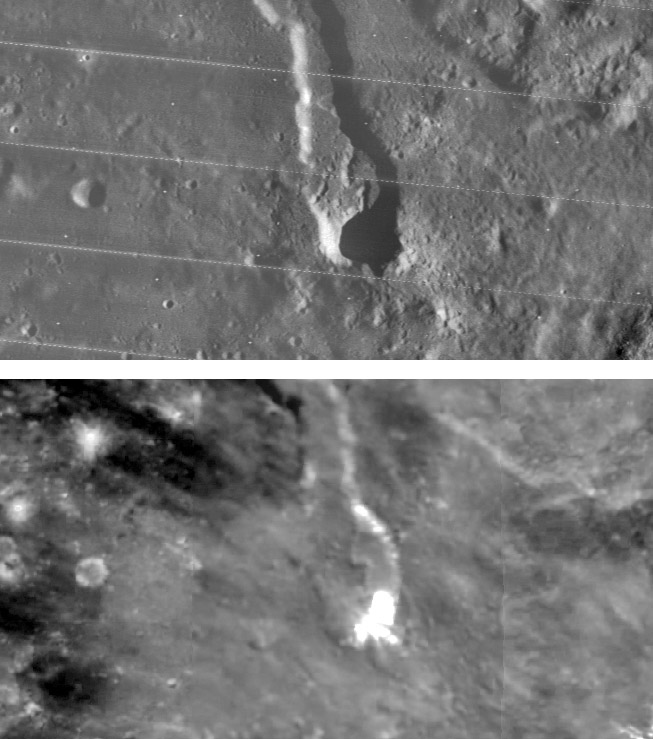May 7, 2008
In the Cobra's Mouth

Lunar Orbiter IV (top) and Clementine (below) images from USGS Map-A-Planet
The recent addition to the Moon Wiki of a link to the wonderful Apollo 15 mosaic of Schröter's Valley showed the top part of the Valley, the Cobra's Head, in shadow. I wondered what was inside the shadow and found this Clementine image, with an Orbiter one to help interpretation. Both images show that the Cobra's Head is a widening of the Valley with a rounded south end. The Head is surrounded by a hill - see how much longer the shadow is there than for the Valley itself. And the east side of that hill is so bright that the Clementine pixels are completely saturated. In fact, I couldn't find a comparable size area of the Aristarchus crater that was saturated. I had hoped to be able to identify the vent area of the the small sinuous rille on the floor of the Valley, but it becomes lost in the brightness. I wonder if this intense brightness is simply unweathered material exposed by rocks sliding downslope or if it some sort of volcanic deposit from when the dark pyroclastics erupted from the Valley and the Cobra Head. One thing I couldn't find was an image taken with sunset illumination to see the bright hill slope under lower lighting. Who will be the first to to acquire a high res sunset view?
Chuck Wood
Related Links
Rükl plate 18
Yesterday's LPOD: A Rille Runs Through It
Tomorrow's LPOD: Triangles of Ash
COMMENTS
(1) What I find interesting is the fact that Clementine Ratio Map shows a uniform light blue. In fact the whole area is sort of a uniform light blue except the NW which gets into shades of yellow and green. Does this mean that its composed of younger Ti rich ore?
The whole thing reminds me of yesterday's LPOD with Vallis Alpes. Are these valleys created in the same fashion? Was it just a large amount of lava carving them out? Or could some other geological process be at work? Do rift valleys exist on the moon?
--Aethrae, Andrew Martin SFO
COMMENTS?
Register, Log in, and join in the comments.



